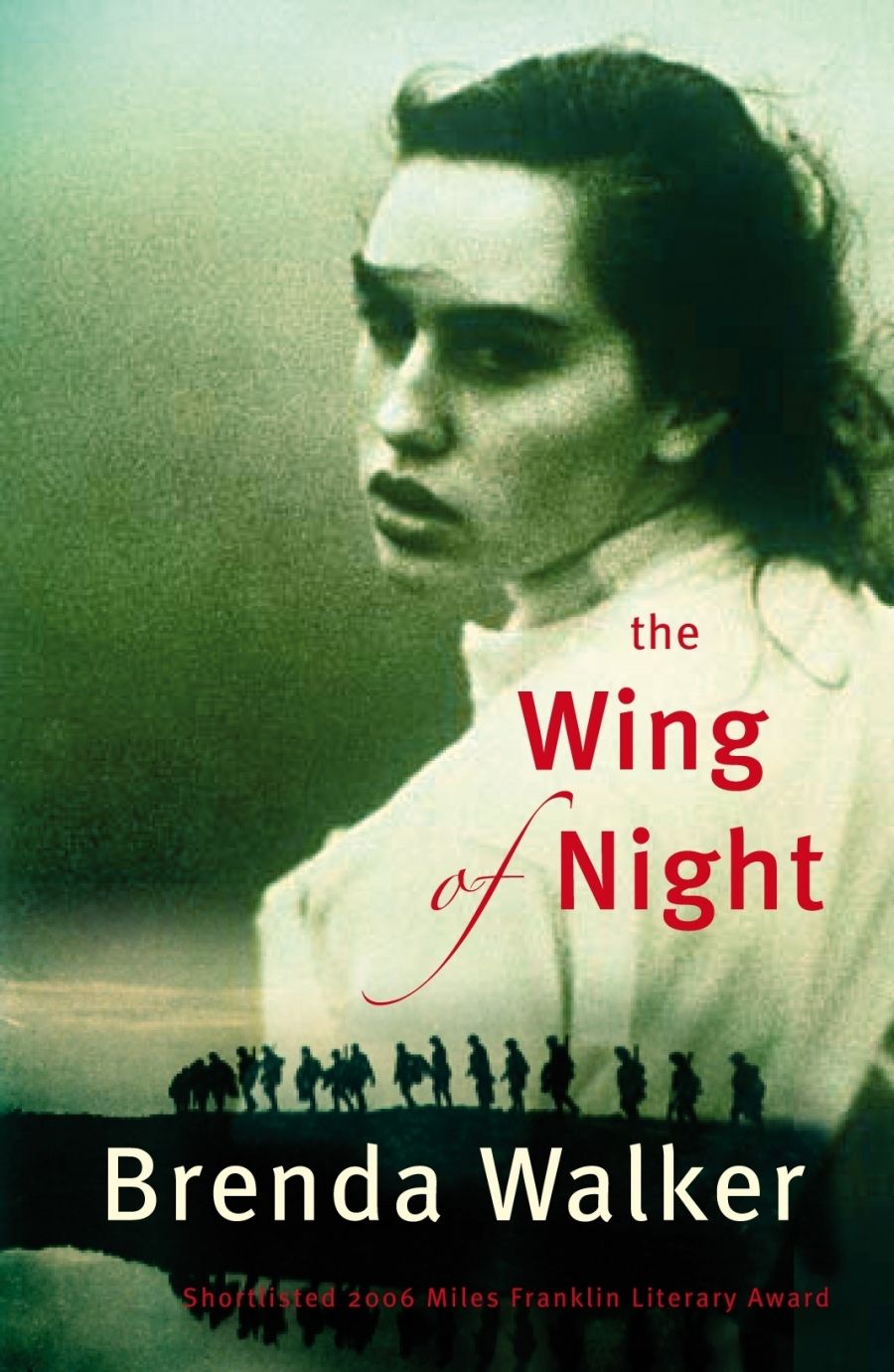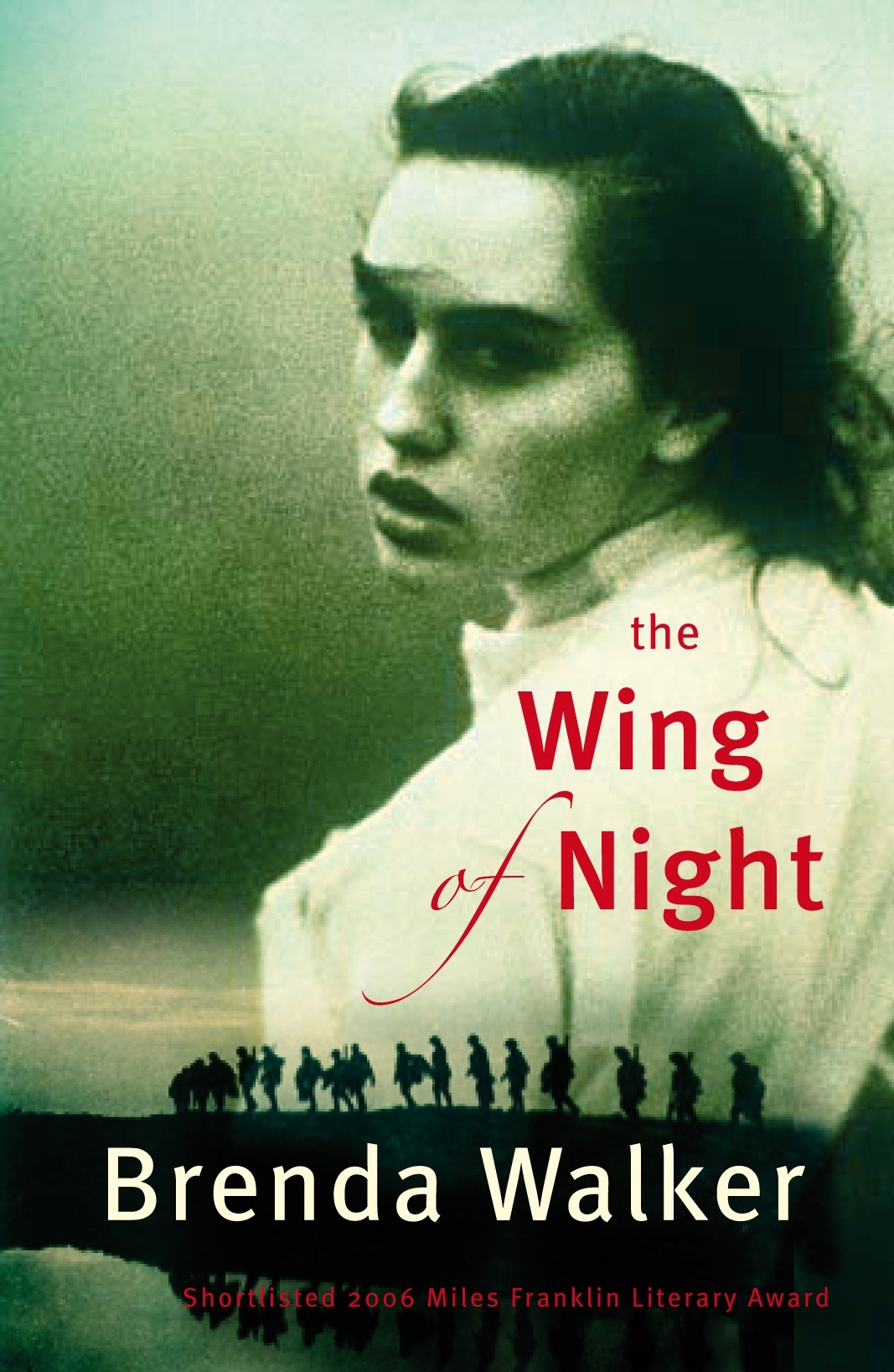
- Free Article: No
- Contents Category: Fiction
- Review Article: Yes
- Article Title: The reverse of the picture
- Online Only: No
- Custom Highlight Text:
Perhaps it’s the Zeitgeist, but Brenda Walker is the third Australian woman this year, after Geraldine Brooks in March and Delia Falconer in The Lost Thoughts of Soldiers, to fix her imaginative sights on men’s experiences of war and its aftermath. Walker’s book, however, directs as much attention to the home front and to the women left behind.
- Book 1 Title: The Wing of Night
- Book 1 Biblio: Viking, $29.95 pb, 266 pp, 0670893234
- Book 1 Cover Small (400 x 600):

- Book 1 Cover (800 x 1200):

Shifting between scenes from the military theatre and from the domestic sphere, The Wing of Night plays out the devastating impact of war on both those sent to fight and those abandoned to lonely, anxious lives. War is depicted as a great leveller, breaching class and gender boundaries that were once considered robust: we witness Louis sleeping curled tight against Joe on a bitter night at Anzac Cove; and Elizabeth and Bonnie struggling to work their land while taking solace in the companionship of a shared pot of tea and a tot of rum.
The Wing of Night charts the lives of these four protagonists, incompletely; we skip ahead months at a time and, at one point, even years. Late on, some entries from 1915 are added as Joe recovers his horrific memories of his days as a sniper at Gallipoli. Joining the dots, at novel’s end, reveals intricate and unexpected patterns to the intersecting lifelines.
This historical novel has clearly emerged from extensive research, yet it does not try to parade its knowledge or to bombard the reader with military details. It is not concerned with painting the big picture of the war but of sketching the specific experiences of a handful of characters. Walker signals her intentions early with her epigram from a story by Henry James: ‘My own taste has always been for unwritten history and my present business is with the reverse of the picture.’ And so, although there are interludes on the battlefield, Walker’s emphasis is on the lesser-known tales of Australian rural life during wartime, and on the travails of the damaged soldiers on their return. The focus is always close-up on the lives, thoughts, emotions, and voices of a few individuals, creating a sense, in true Jamesian fashion, of ‘felt life’.
There is a deceptive simplicity to this realist narrative: the language is plain, and there is a brevity and laconicism to the descriptions, which does not detract from their evocativeness: for example, ‘[Bonnie] used to wake her grandmother by moving her fingertips across the skin of the old woman’s arm. The flesh was almost gone; all that was left was a softness, sliding over bone.’ This style suits Walker’s material for, in many ways, the early decades of the twentieth century were simpler times, especially for those living on the land: travel and communication were much slower, and whole days were devoted to relatively short journeys or to individual tasks such as the weekly wash. The novel’s few longueurs echo this attenuated pace of life.
Walker has a magical gift for characterisation, conjuring the formative influences on a person’s life and personality in just a few sentences. Of Joe, we are told: ‘His mother had been mad, before and after the death of his father. He remembered her crouching under the bridge that led into the town. Once, he worked his way under her arm and for a minute the weight of it felt as if she were holding him. When her arm slid across his back it could have been a long caress.’
Connecting all of the main characters is the death of a parent in childhood, and, through terse flashbacks, we recognise the lode of grief with which each is already burdened, even before the ravages of war. This novel suggests that love and loss are the defining human conditions, intimately linked as they are, and that grief not only maims your present but deforms your future, too. As Elizabeth’s father tells her: ‘One of the great illusions in life is that things will get better.’
If one of the aims of literature is to enable us imaginatively to inhabit other lives, perhaps occurring in different times and places, The Wing of Night is a remarkable achievement. Walker has taken the facts of history and transformed them into a novel replete with its own set of truths. She has done what historians cannot: invented characters to tell us exactly how it felt to live in a particular historical moment, one that sheds light on our own times.


Comments powered by CComment